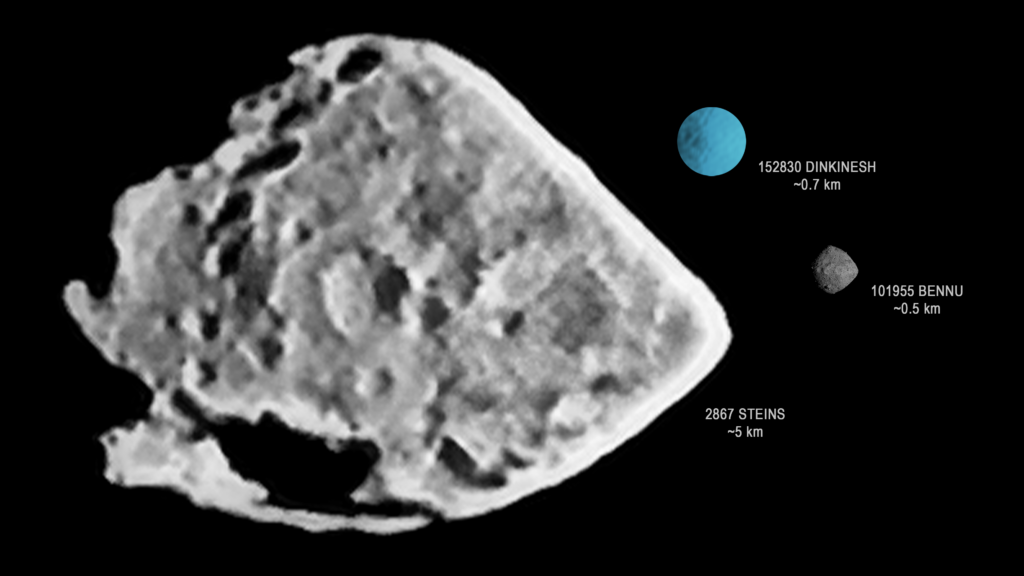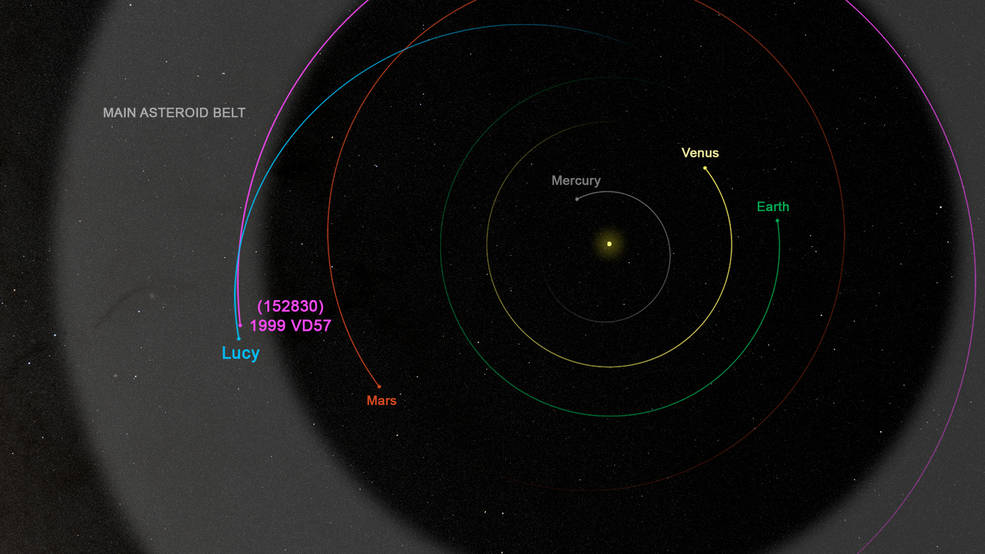The Lucy mission team talked about the preparations for the close flyby of the Dinkinesh asteroid. The rendezvous with it will take place on November 1.

The Lucy mission was launched in October 2021. Its target is to study Trojan asteroids in the Jovian orbit. This is how astronomers call two large groups of objects that are constantly located in the vicinity of the Lagrange points L₄ and L₅ of the Sun-Jupiter system.
On the way to the Lagrange points, Lucy will pass through the Main Asteroid Belt several times. After the launch of the spacecraft, the mission specialists decided to look for passing objects that could become additional targets for the spacecraft. Success awaited them. Scientists have discovered that the small asteroid 1999 VD57, which is estimated to be about a kilometer in diameter, is in the range of the probe. After that, they adjusted the course of Lucy, and the previously unremarkable rock received a full name. It was called Dinkinesh. This is what the Ethiopian people call Lucy — the skeleton of an Australopithecus discovered in 1974, which has become one of the most important anthropological finds in history. The Lucy mission was named after it.
On September 3, Lucy photographed Dinkinesh for the first time. At the time of the capture, it was located at a distance of 23 million km from the asteroid. Since then, the spacecraft has traveled more than 54 million km and is now located at a distance of 7.6 million km from a small asteroid. There is no contradiction in these figures, since Dinkinesh does not stand still but moves in its orbit around the Sun. So Lucy is going to cover almost 25 million km before its meeting with the asteroid.

Over the past month, mission specialists have performed a number of measurements of the asteroid’s brightness. They show that the rotation period of the Dinkinesh is 52.7 hours. In addition, engineers used this data to determine the relative positions of the spacecraft and the asteroid as accurately as possible.
On September 29, Lucy performed a small course correction that changed its speed by 6 cm/s. According to forecasts, as a result of this maneuver, Lucy entered a trajectory that would provide a flight at a distance of 425 km from Dinkinesh. If necessary, at the end of October, the team will have another opportunity to adjust the flight path of the spacecraft.
According to https://science.nasa.gov
Follow us on Twitter to get the most interesting space news in time
https://twitter.com/ust_magazine
